Secret Forces
 |
 |
 |
 |
 |
 |
 |
Analyzing Reiki & Yoga- VI
‘Channeling’ the Energy in Reiki
This article first published on Religionenlibertad, examines the practice of Reiki based on the writings of Fr. Gareth Leyshon. Fr. Leyshon, at turn, analyzes matters linked to Reiki, “spiritual energies” and the New Age. He is a scientist, with a Ph.D. in Physics and also a preacher in the Archdiocese of Cardiff, Wales. As chaplain at Glamorgan University, he is quite aware of the wrong roads being taken by many youth.
This has led him to study the healing therapies of Reiki and to conclude that, independent of whether they heal or not, they are incompatible with the Catholic Faith.
Although we do not agree with his general ecumenical approach and progressivist stand following Vatican II, we believe his strong warnings against New Age techniques are helpful for Catholics. TIA
This has led him to study the healing therapies of Reiki and to conclude that, independent of whether they heal or not, they are incompatible with the Catholic Faith.
Although we do not agree with his general ecumenical approach and progressivist stand following Vatican II, we believe his strong warnings against New Age techniques are helpful for Catholics. TIA
There are countless Reiki masters and groups, but all of them agree on some basic elements:
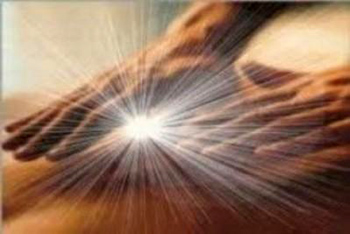 * Reiki involves manipulating or channeling a “spiritual energy” called ki (chi in China, prana in India) to achieve healing or cure.
* Reiki involves manipulating or channeling a “spiritual energy” called ki (chi in China, prana in India) to achieve healing or cure.
* The Reiki practitioners, those who channel this energy, must be initiated by other higher level practitioners in a ritual of “harmonization” or “attunement” using secret symbols (objects and techniques).
As a Doctor in Physics, Fr. Leyshon tells us that “in the language of science, energy has a precise meaning: it can be measured and converted from one form to another.” But as a Catholic priest and college chaplain, Leyshon takes the pastoral approach, addressing Catholics who are attracted to Reiki to warn them of its dangers.
In his Catholic Critique of the Healing Art of Reiki, he criticizes the Reiki therapy from a Catholic perspective. Since the practice is growing in the West and becoming widely available, there is a pressing need for ”a well-grounded theological response.”
He does not propose to identify the ontological nature of ki, which would be a vast undertaking, but rather to consider beliefs about ki, as held by Reiki practitioners in order to compose a moral response to its practice. From this perspective, he presents the following moral implications:
1. If there is no evidence of the existence of ki, any further attempt to manipulate it is superstition, “a sin under Article 2111 of the Catechism of the Catholic Church.”
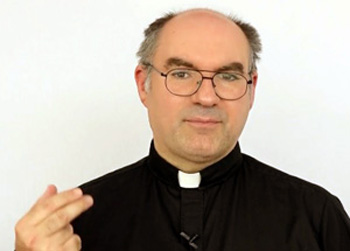 2. It may be the case that there are properties of the human body which Western medicine has not yet come to terms with. If the concept of ki is shown to encode such a property of the physical body, then, we may consider the exercises understood to “manipulate ki” within the limits validated by science without any special moral problems.
2. It may be the case that there are properties of the human body which Western medicine has not yet come to terms with. If the concept of ki is shown to encode such a property of the physical body, then, we may consider the exercises understood to “manipulate ki” within the limits validated by science without any special moral problems.
However, this has not been established and Reiki practitioners do not speak about ki as something physical, but spiritual. Even when they say something is “natural,” this does not mean that it is only physical, because in Eastern philosophies there is no clear distinction between the natural and the supernatural.
3. Some say that ki and its manipulation in Reiki is spiritual and not physical and that it comes from God. But, since it cannot be proved that ki comes from God, then it could come from demonic sources. Therefore, one should not risk such manipulation without the firm assurance of Revelation. Practicing such techniques would constitute the sin of “tempting God.”
Moreover, in Catholicism we have the sacraments, sacramentals and prayers for the sick.
“Nowhere does Scripture teach us to ‘channel energy’ in a way characteristic of Reiki. In fact, presuming that God will assist in a way that He has not revealed to be His will constitutes the sin of ‘tempting God,’” writes the chaplain of the Welsh university.
4. Even if ki did not have anything to do with demonic activity, but only with a special psychic power, “Reiki constitutes the kind of taming of spiritual energy (actual or attempted) that falls short of explicit recourse to demons, which is forbidden by article 2117 of the Catechism.“
Further, the vast majority of Reiki practitioners admit that what they do is to channel to their clients a “spiritual energy that comes from outside of themselves.” They do not believe they are exercising psychic powers.
Ritual initiations are idolatry
To become a Reiki practitioner one must go through a ritual initiation that uses secret “symbols.” Some authors, such as Diane Stein in her book Essential Reiki, acknowledge that “spirit guides” assist the performance of Reiki or that the energy is being directed by a higher intelligence. Obviously, this invocation of spirits or mediumship is a practice forbidden by Catholicism, whether the Reiki practitioners are aware of such guides or not.
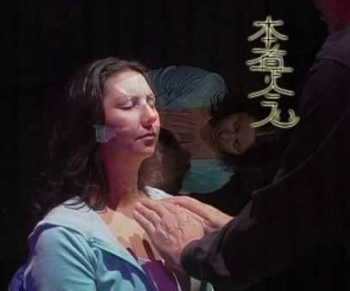 But, even on the first level of Reiki, Fr. Leyshon notes, “the mere fact of needing to be initiated rather than simply being taught to manipulate ki gives Reiki the character of a ritual rather than a therapy. Since the attunement enables the initiated to connect to the source of ki, it is religious in the etymological sense that religare means to reconnect.”
But, even on the first level of Reiki, Fr. Leyshon notes, “the mere fact of needing to be initiated rather than simply being taught to manipulate ki gives Reiki the character of a ritual rather than a therapy. Since the attunement enables the initiated to connect to the source of ki, it is religious in the etymological sense that religare means to reconnect.”
Further, the practitioner who submits himself to a Reiki initiation allows spiritual authority to be exercised over himself. “Since the authority is not clearly sourced in the Triune God, this act of submission must constitute idolatry,” concludes Leyshon.
The indispensability of initiation is the clearest sign of the reason why Reiki cannot be compatible with Catholicism. And if it is incompatible with Catholicism, it is to be rejected. Therefore, Catholics should neither practice Reiki nor have recourse to it for healing.
What the exorcists say
Beyond the theory, Fr. Leyshon points to practical evidence from the work of diocesan exorcists, who warn that persons subjecting themselves either knowingly or unknowingly to the “healing touch” of Reiki can result in the form of a demonic attack known as “obsession” or “infestation.”
The priest documents this statement with cases from Deliverance from Evil Spirits: A Practical Manual by Francis MacNutt (1980) and Deliverance from Evil Spirits by Scanlan & Corner (1995), who are Catholic authors with experience on the topic. Fr. Leyshon insists, however, that “demonic attack is a vulnerability, not a certainty, for those who have exposed themselves in these ways.”
The pastoral response to Reiki
As a Doctor in Physics, Fr. Leyshon could be tempted to simply tell his parishioners or college students that “according to science there is no evidence that ki energy exists.“ But this is not always the most effective pastoral response.
Superiors may avoid the questions of whether it works and its mechanism by simply stressing that Catholics are committed to turn to no spiritual source other than the Triune God, who has not revealed Reiki as a means of harnessing his power, he advises.
Opposition to Reiki can be turned into an opportunity for evangelization. He suggests that emphasis be placed on the true healing power of Christ, which can be accessed through the Sacraments and prayer. He also recommends that those who have received or practiced Reiki should receive Confession, even if the person was not aware that its practice was sinful.
 He proposes that “the confessor should stand ready to pray for deliverance from oppressive spiritual influences.” If there is evidence of “obsession,” often manifested in the form of strong recurrent temptation in a particular subject matter, he notes that prayer for deliverance “is reserved to the diocesan exorcist.“
He proposes that “the confessor should stand ready to pray for deliverance from oppressive spiritual influences.” If there is evidence of “obsession,” often manifested in the form of strong recurrent temptation in a particular subject matter, he notes that prayer for deliverance “is reserved to the diocesan exorcist.“
Priests should also publicly warn against recourse to Reiki in their homilies, Fr. Leyshon advises, having recourse to the many scriptural texts about worshipping God alone or the healing power of Jesus Christ.
Since Reiki is now offered in some hospitals and health centers, he suggests that appeals be lodged with secular authorities to label Reiki as a spiritual practice to alert potential patients of its real nature. However, since the authorities can reply that Reiki practitioners deny any appeal to spiritual powers, it is best for pastors to remind Catholics that recourse to Reiki is forbidden by Catholic moral principles.
Soliciting or practicing Reiki is always wrong in the sight of God. Catholics, therefore, should turn to no other spiritual power than Jesus Christ the Savior, God the Father and the Holy Spirit the Comforter.
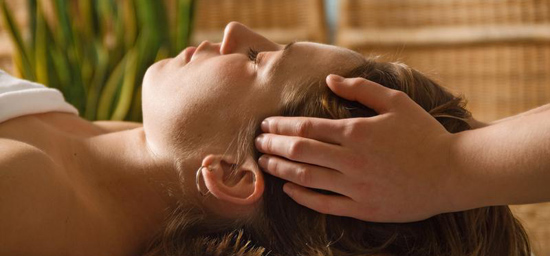
Continued

This article was first publishedn Spanish on
ReligionenLibertad on January 29, 2013

All Reiki manipulators claim it is a 'spiritual' energy
* The Reiki practitioners, those who channel this energy, must be initiated by other higher level practitioners in a ritual of “harmonization” or “attunement” using secret symbols (objects and techniques).
As a Doctor in Physics, Fr. Leyshon tells us that “in the language of science, energy has a precise meaning: it can be measured and converted from one form to another.” But as a Catholic priest and college chaplain, Leyshon takes the pastoral approach, addressing Catholics who are attracted to Reiki to warn them of its dangers.
In his Catholic Critique of the Healing Art of Reiki, he criticizes the Reiki therapy from a Catholic perspective. Since the practice is growing in the West and becoming widely available, there is a pressing need for ”a well-grounded theological response.”
He does not propose to identify the ontological nature of ki, which would be a vast undertaking, but rather to consider beliefs about ki, as held by Reiki practitioners in order to compose a moral response to its practice. From this perspective, he presents the following moral implications:
1. If there is no evidence of the existence of ki, any further attempt to manipulate it is superstition, “a sin under Article 2111 of the Catechism of the Catholic Church.”

Fr. Leyshon warns that practicing techniques like Reiki constitute a sin of tempting God
However, this has not been established and Reiki practitioners do not speak about ki as something physical, but spiritual. Even when they say something is “natural,” this does not mean that it is only physical, because in Eastern philosophies there is no clear distinction between the natural and the supernatural.
3. Some say that ki and its manipulation in Reiki is spiritual and not physical and that it comes from God. But, since it cannot be proved that ki comes from God, then it could come from demonic sources. Therefore, one should not risk such manipulation without the firm assurance of Revelation. Practicing such techniques would constitute the sin of “tempting God.”
Moreover, in Catholicism we have the sacraments, sacramentals and prayers for the sick.
“Nowhere does Scripture teach us to ‘channel energy’ in a way characteristic of Reiki. In fact, presuming that God will assist in a way that He has not revealed to be His will constitutes the sin of ‘tempting God,’” writes the chaplain of the Welsh university.
4. Even if ki did not have anything to do with demonic activity, but only with a special psychic power, “Reiki constitutes the kind of taming of spiritual energy (actual or attempted) that falls short of explicit recourse to demons, which is forbidden by article 2117 of the Catechism.“
Further, the vast majority of Reiki practitioners admit that what they do is to channel to their clients a “spiritual energy that comes from outside of themselves.” They do not believe they are exercising psychic powers.
Ritual initiations are idolatry
To become a Reiki practitioner one must go through a ritual initiation that uses secret “symbols.” Some authors, such as Diane Stein in her book Essential Reiki, acknowledge that “spirit guides” assist the performance of Reiki or that the energy is being directed by a higher intelligence. Obviously, this invocation of spirits or mediumship is a practice forbidden by Catholicism, whether the Reiki practitioners are aware of such guides or not.

A Reiki student is intiated into the 3rd degree by a master
Further, the practitioner who submits himself to a Reiki initiation allows spiritual authority to be exercised over himself. “Since the authority is not clearly sourced in the Triune God, this act of submission must constitute idolatry,” concludes Leyshon.
The indispensability of initiation is the clearest sign of the reason why Reiki cannot be compatible with Catholicism. And if it is incompatible with Catholicism, it is to be rejected. Therefore, Catholics should neither practice Reiki nor have recourse to it for healing.
What the exorcists say
Beyond the theory, Fr. Leyshon points to practical evidence from the work of diocesan exorcists, who warn that persons subjecting themselves either knowingly or unknowingly to the “healing touch” of Reiki can result in the form of a demonic attack known as “obsession” or “infestation.”
The priest documents this statement with cases from Deliverance from Evil Spirits: A Practical Manual by Francis MacNutt (1980) and Deliverance from Evil Spirits by Scanlan & Corner (1995), who are Catholic authors with experience on the topic. Fr. Leyshon insists, however, that “demonic attack is a vulnerability, not a certainty, for those who have exposed themselves in these ways.”
The pastoral response to Reiki
As a Doctor in Physics, Fr. Leyshon could be tempted to simply tell his parishioners or college students that “according to science there is no evidence that ki energy exists.“ But this is not always the most effective pastoral response.
Superiors may avoid the questions of whether it works and its mechanism by simply stressing that Catholics are committed to turn to no spiritual source other than the Triune God, who has not revealed Reiki as a means of harnessing his power, he advises.
Opposition to Reiki can be turned into an opportunity for evangelization. He suggests that emphasis be placed on the true healing power of Christ, which can be accessed through the Sacraments and prayer. He also recommends that those who have received or practiced Reiki should receive Confession, even if the person was not aware that its practice was sinful.

Catholics should warn hospitals that Reiki is an occult practice that should not be offered to patients
Priests should also publicly warn against recourse to Reiki in their homilies, Fr. Leyshon advises, having recourse to the many scriptural texts about worshipping God alone or the healing power of Jesus Christ.
Since Reiki is now offered in some hospitals and health centers, he suggests that appeals be lodged with secular authorities to label Reiki as a spiritual practice to alert potential patients of its real nature. However, since the authorities can reply that Reiki practitioners deny any appeal to spiritual powers, it is best for pastors to remind Catholics that recourse to Reiki is forbidden by Catholic moral principles.
Soliciting or practicing Reiki is always wrong in the sight of God. Catholics, therefore, should turn to no other spiritual power than Jesus Christ the Savior, God the Father and the Holy Spirit the Comforter.

'Persons subjecting themselves to Reiki can have demonic attacks of infestation'
Continued

Posted June 10, 2016
ReligionenLibertad on January 29, 2013
______________________
______________________
 Volume I |
 Volume II |
 Volume III |
 Volume IV |
 Volume V |
 Volume VI |
 Volume VII |
 Volume VIII |
 Volume IX |
 Volume XI |
 Special Edition |
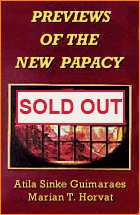 Special Edition |


